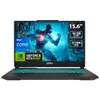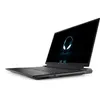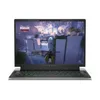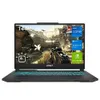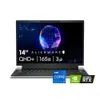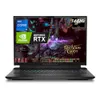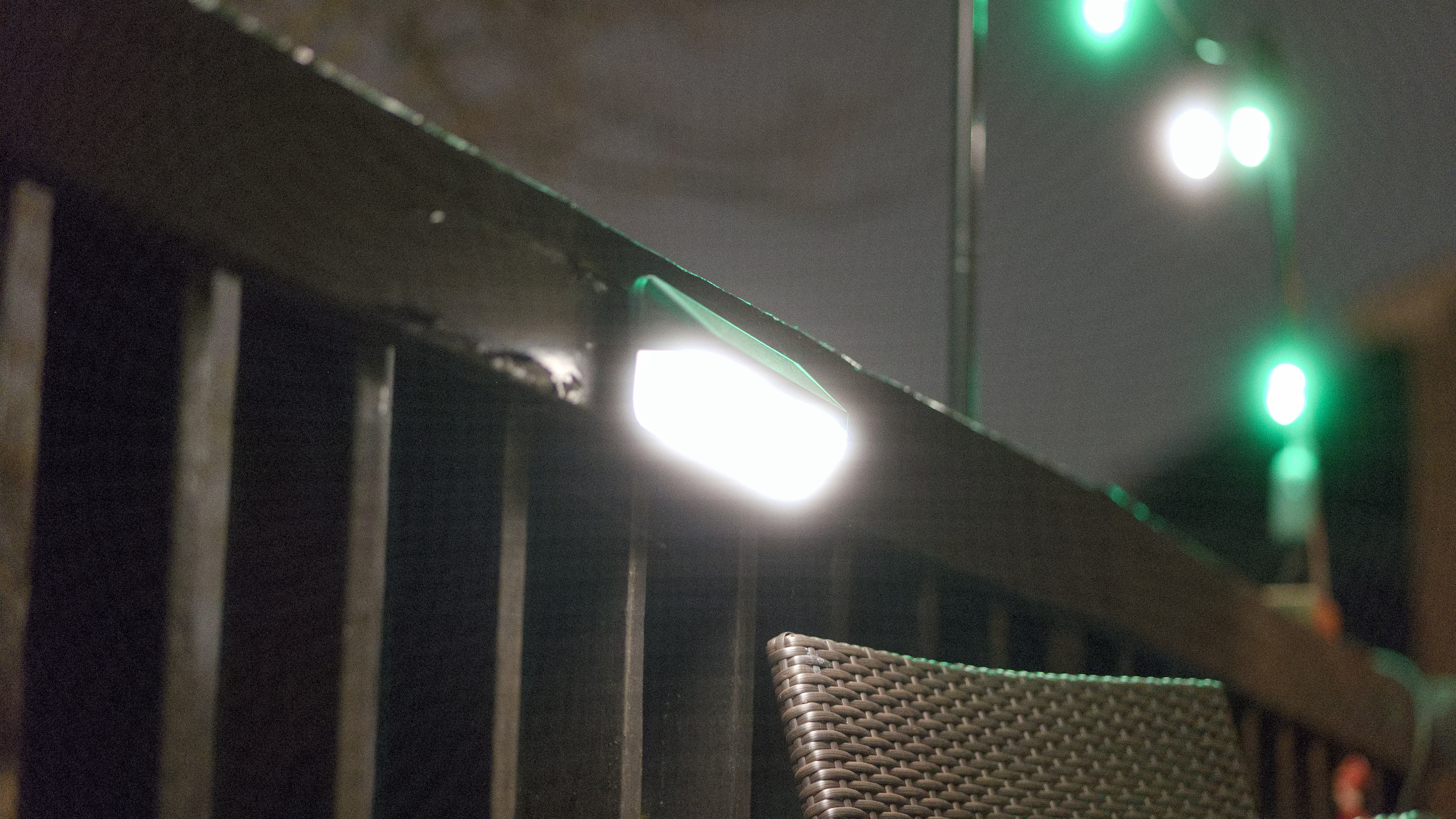I tried PC gaming with a trackball and it reignited my love for mouse and keyboard
It might be time to put down my controller for good
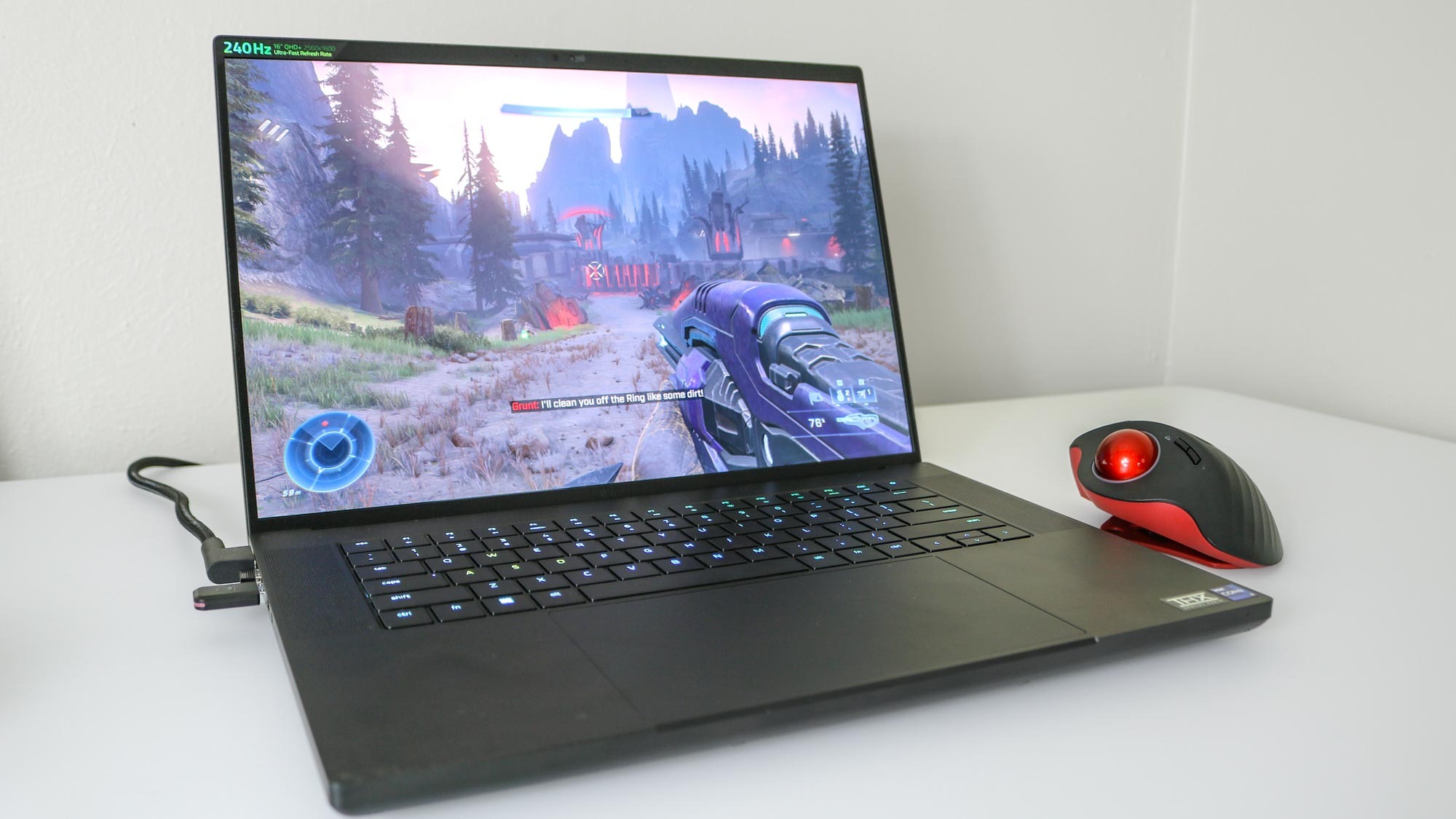
When they’re not making the case as to why playing on PC is a vastly better option over consoles, PC gamers often fall back to another frequent point of discussion: keyboard and mouse vs controller. And who can blame them, as up until very recently, gaming with a keyboard and mouse was strictly reserved for PCs.
I’ve been on both sides of this argument myself as I started playing on one of the best gaming PCs using keyboard and mouse before ultimately switching back to using a controller. While some games like first-person shooters naturally lend themselves to keyboard and mouse, others like Rocket League or the skateboarding SIM Session are a lot easier to control with one of the best PC game controllers.
As I’ve gotten older though, using a gaming mouse or even a traditional wireless mouse just isn’t nearly as comfortable as it used to be. All of that extra wrist movement has taken its toll, which is why for the past few years, I’ve been using a trackball mouse instead. I mainly use my trusty Elecom trackball mouse as a productivity tool since it has loads of customizable buttons but as I’ve grown comfortable using it for hours on end at work, I started wondering what it would be like to game with a trackball.
Though you can theoretically use any trackball mouse while gaming on PC, the company GameBall specializes in making ones specifically designed with gaming in mind. They sent over their original GameBall and their recently released GameBall Thumb ($69, GameBall) for me to test out. I’ve been using the latter while playing some of the best PC games for the past two weeks, and while I thought I was done with a keyboard and mouse as input devices, the GameBall Thumb reminded me exactly what I was missing out on by playing with a controller.
Here’s everything you need to know about this unique trackball mouse and why you might want to consider using one yourself while gaming on PC.
Leveling up the trackball mouse
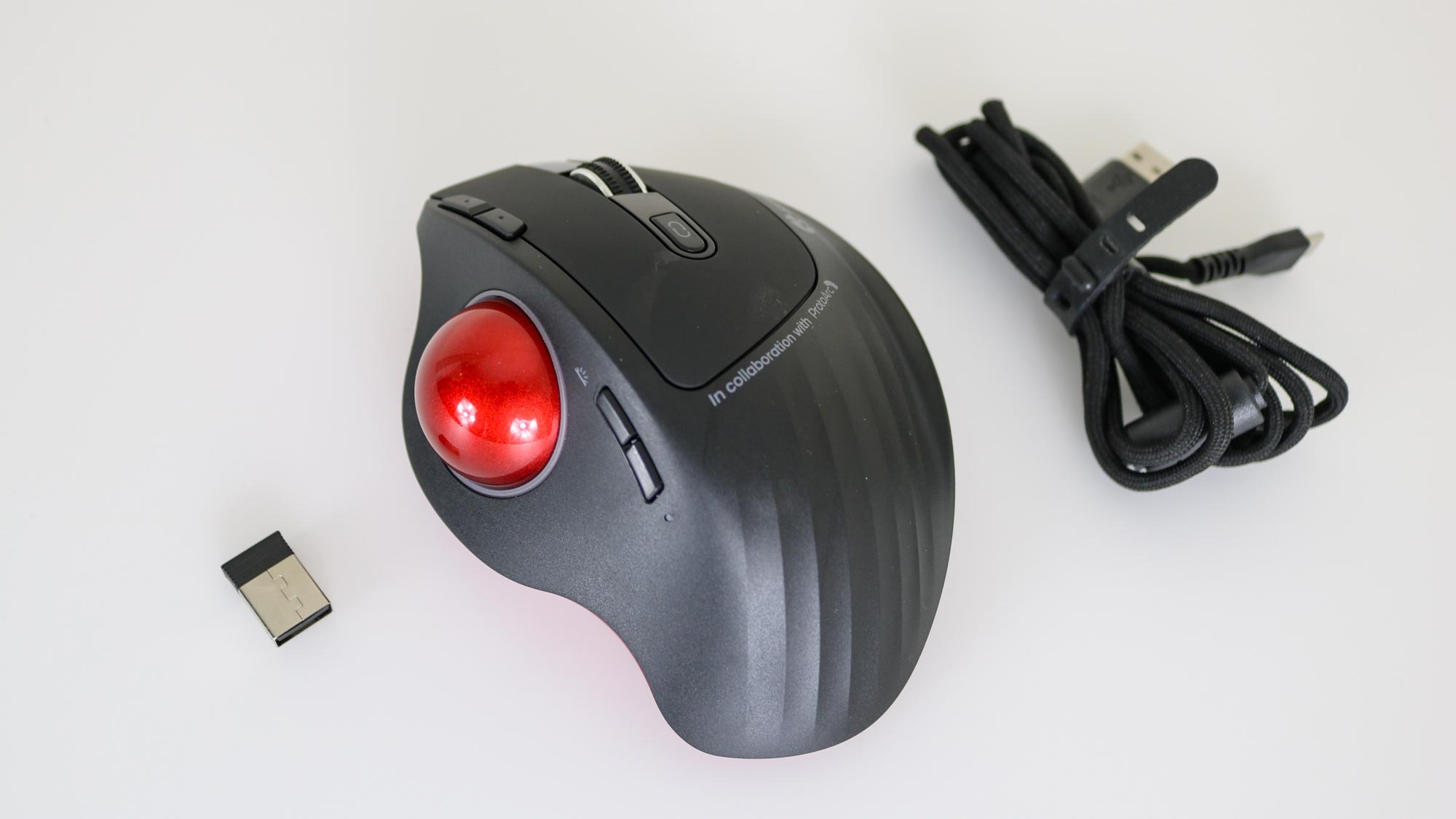
After working with a partner in the UK on its original trackball mouse for PC gamers, GameBall decided to go a different route with its new thumb-operated trackball. This time around, the company is collaborating with ProtoArc on their latest model which worked out perfectly for me, as I picked up one of their trackball mice back when I was looking for a more affordable alternative to the Logitech MX Ergo. As such, I was already familiar with the GameBall Thumb’s design and how it worked.
The GameBall Thumb uses the same mold and overall design as the ProtoArc EM01 ($53, Amazon), albeit with several gaming-focused tweaks. While the EM01 has a max DPI or “dots per inch” of 1,600, the GameBall Thumb more than triples this with a max DPI of 5,000. Having a higher DPI setting is ideal for PC gaming, as this lets you move your mouse cursor faster while covering more screen distance with less movement. In the picture above, the small button on the far right lets you easily swap between six native DPI settings, while the button to the left allows you to control the color of the RGB ring next to it that wraps around the mouse’s trackball.
While the original GameBall mouse is wired only, the GameBall Thumb gives you several options to connect it to your PC. You can connect over Bluetooth or wired using the included braided USB-C cable and there’s also a 2.4 GHz USB dongle for a wireless connection with lower latency. However, unlike on some other trackball mice, there isn't a cutout on the bottom of the GameBall Thumb to store it, so you will need to keep a close eye on it.
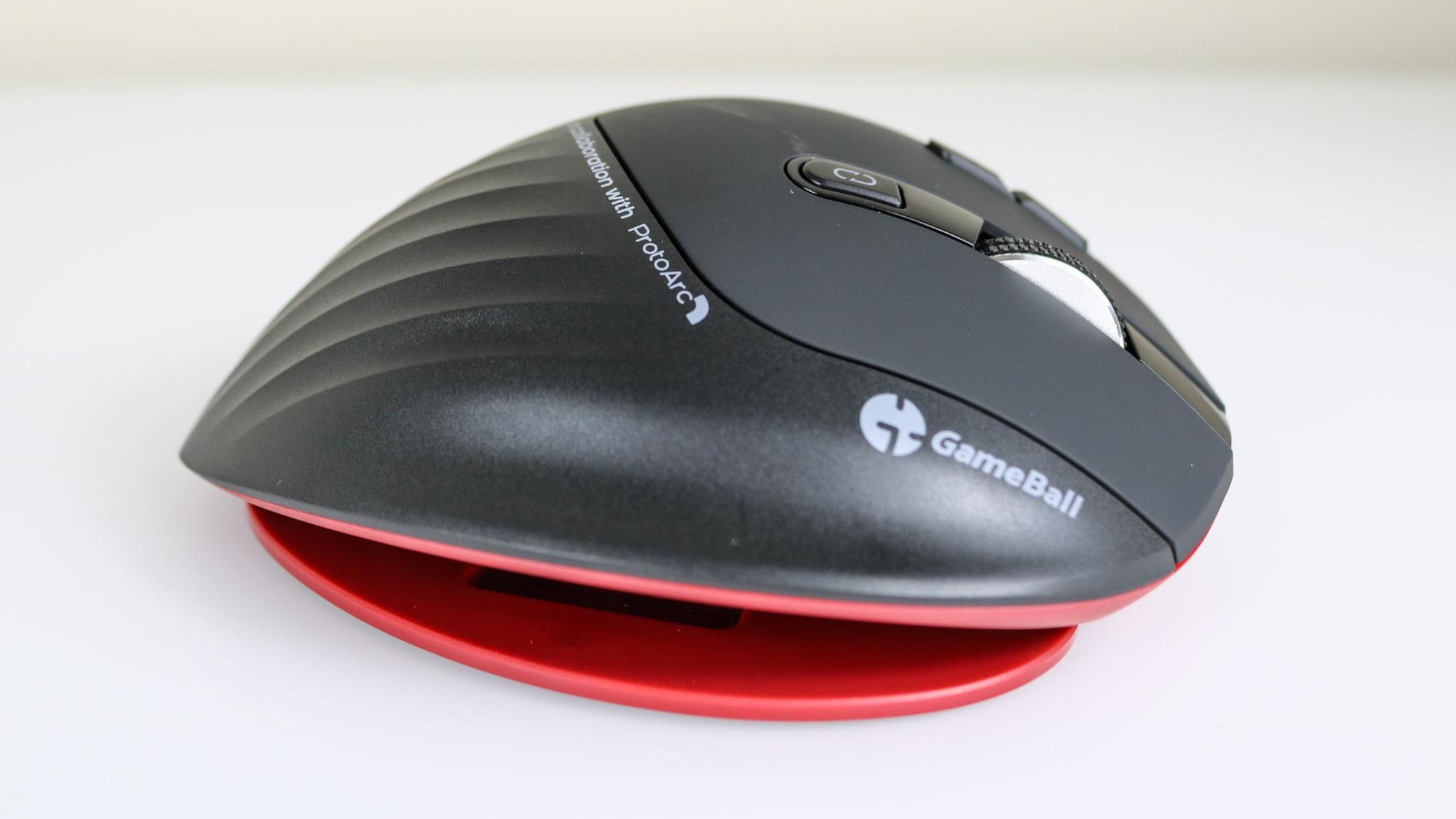
The limited edition of the GameBall Thumb stands out quite a bit since it has a red trackball along with a red base. I absolutely love the way it looks and if you want one like this, you’re going to need to hurry as once GameBall sells out of them, the standard edition will be completely black with a black trackball and a black base. Underneath the GameBall Thumb’s scroll wheel, there’s a precision button that when pressed, lets you lock in your cursor movement which is perfect for headshots and other fine movements.
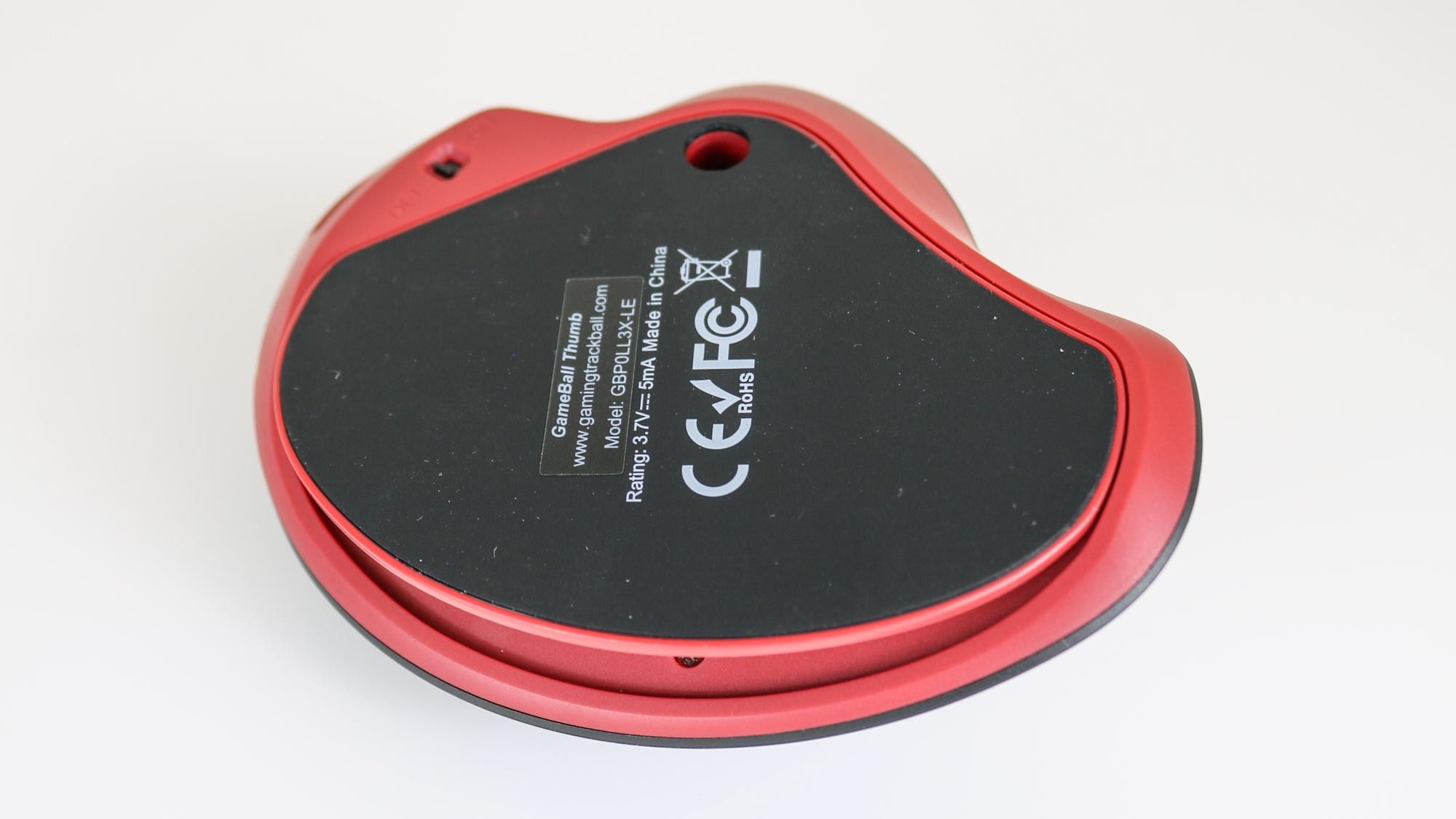
Besides a physical on/off switch, there’s also a hole at the base of the GameBall Thumb which you can use with a pencil or a similar-shaped object to pop out the mouse’s trackball. Over time, dust and other debris can work its way into the part of the mouse that holds the trackball in place, which is why you need to take out and periodically clean it.
Another useful feature of the GameBall Thumb’s base is that it’s angled and can be adjusted by 20 degrees. This makes using it more ergonomic and with the mouse tilted up, I was able to comfortably rest my forearm on my desk while using it.
Mouse and keyboard how I’ve missed you
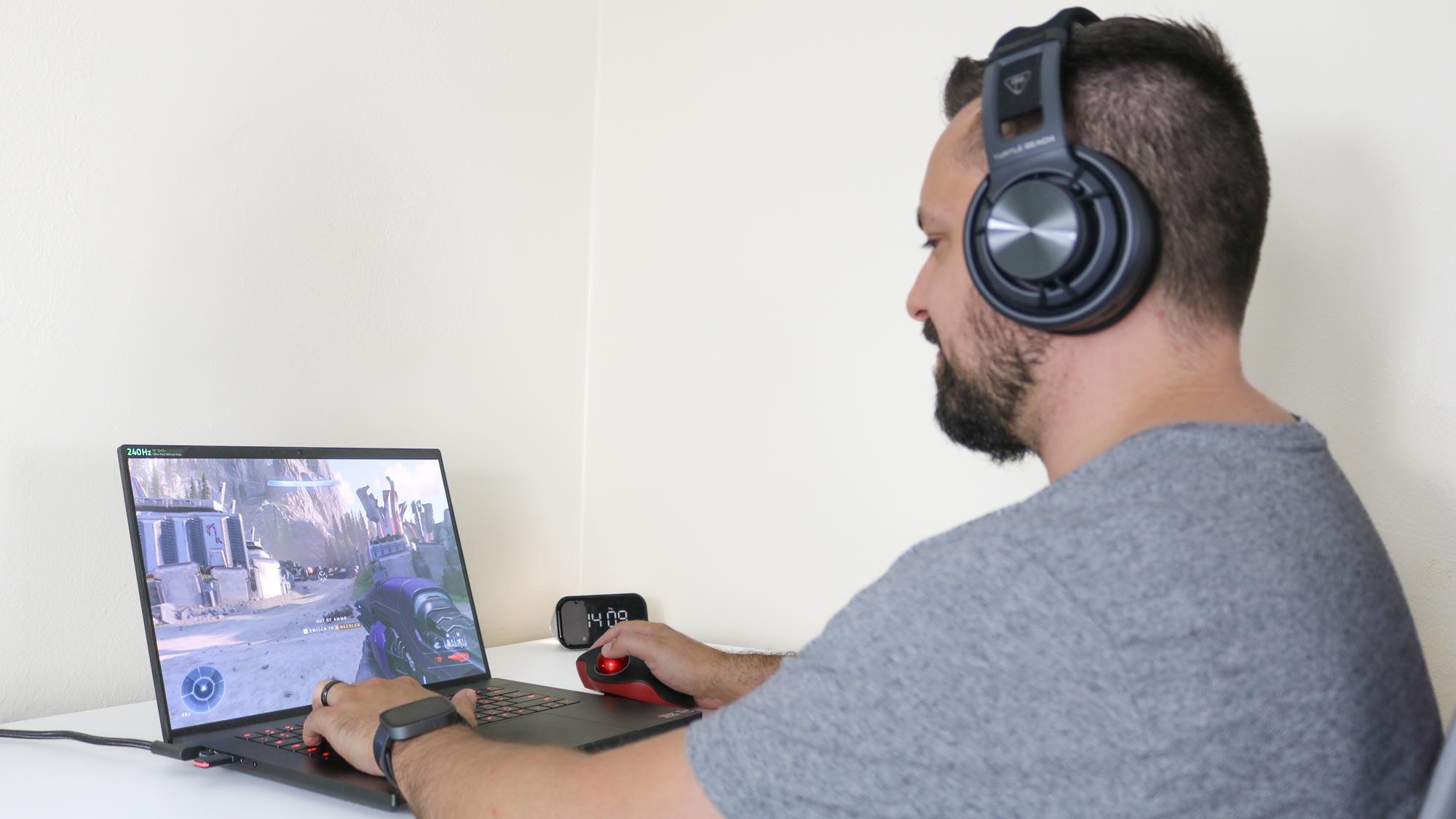
Though keyboard and mouse isn’t the best choice for every type of game, I have fond memories of playing first-person shooters this way after building my first gaming PC and playing Crysis and Half-Life 2 all those years ago. Halo might have risen to popularity on Xbox originally, but both of the first games were also released on PC before all of them were made available in Halo: The Master Chief Collection. As I’ve been trying to make my way through Halo Infinite on my Xbox — where I also played a bit with mouse and keyboard — I decided to load up the game on the Razer Blade 16 and pick up where I left off.
Although I’ve been using a trackball mouse on my main desk setup for years now, it did take a little bit to get the GameBall Thumb configured to my liking. As I mentioned before, I tilted the stand up and from there, it was just a matter of getting my DPI settings adjusted. After pressing the DPI button a few times, I ended up settling on the orange option where the GameBall Thumb is set to 3,000 DPI. I changed the RGB lights to rainbow and tried a few other solid colors before going with red to match the mouse’s base and trackball.
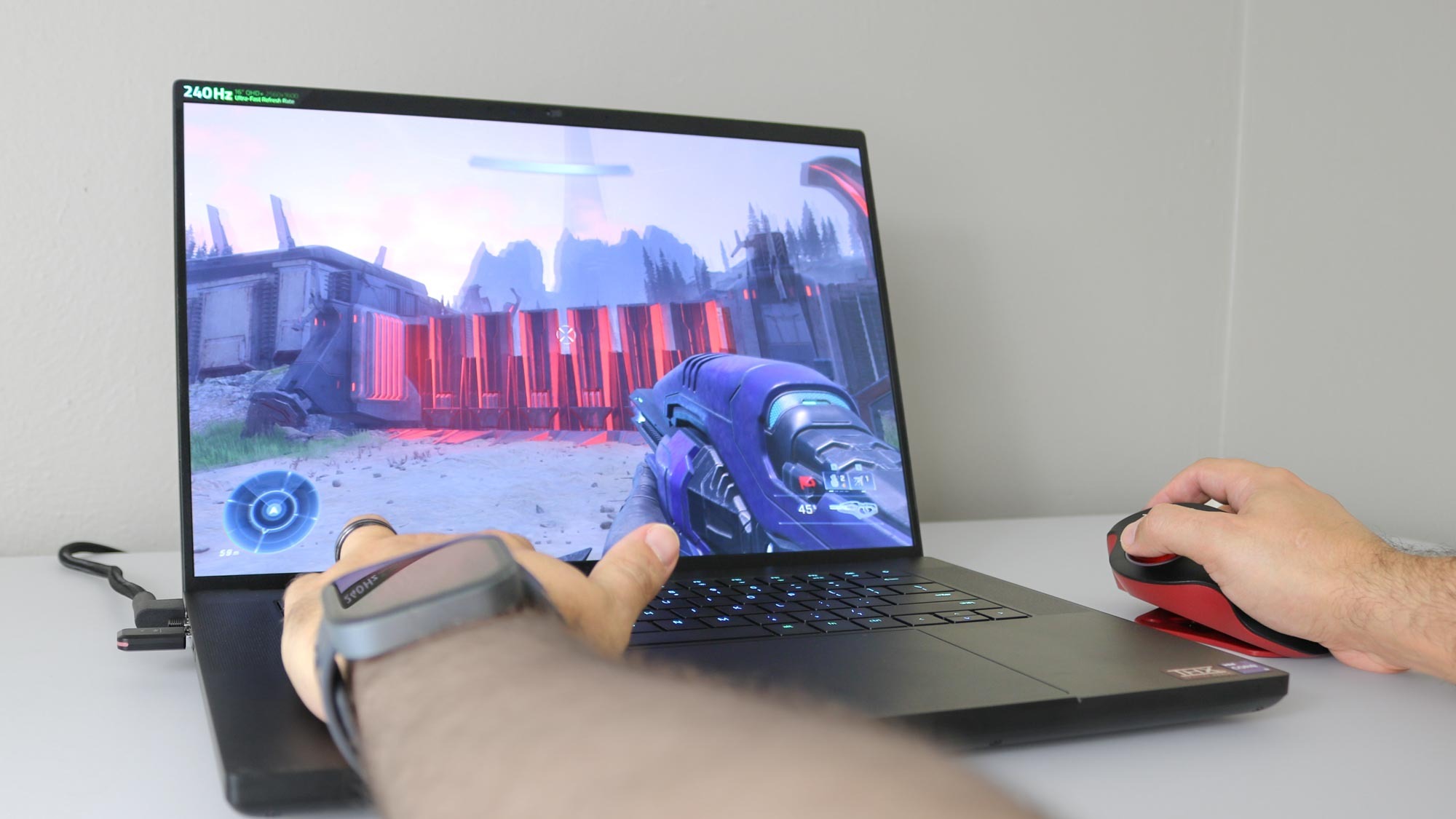
Using a keyboard and a traditional mouse to game would have left me sore, and I probably only would have been able to play for a few minutes at a time. However, with the GameBall Thumb, I found it easier to look around the open world of Halo Infinite, and I really liked how easy it was to flick the trackball to turn 180 degrees when enemies approached me from behind.
I played Halo Infinite for a bit before deciding to move on to a brand new game since I had no idea what I was supposed to be doing or where I needed to go. It’s been in my backlog for some time, but I figured testing out the GameBall Thumb was the perfect opportunity to finally start Metro Exodus. I played both of the previous games in the series and even read the books they’re based on, so I was ready to see what the end of Artyom’s journey had in store for him.
I don’t know if it was the game itself or just how great it felt to be playing an FPS game with keyboard and mouse again, but over the past week alone, I’ve clocked seven and a half hours in Metro Exodus. From exploring the post-apocalyptic Russian wilderness to upgrading my equipment and just spending time with everyone else fleeing Moscow aboard the game’s train, it’s been a blast. While I wish I had started the game earlier, part of me is glad I waited as I likely would have just played through it using a controller.
A gaming trackball for the rest of us
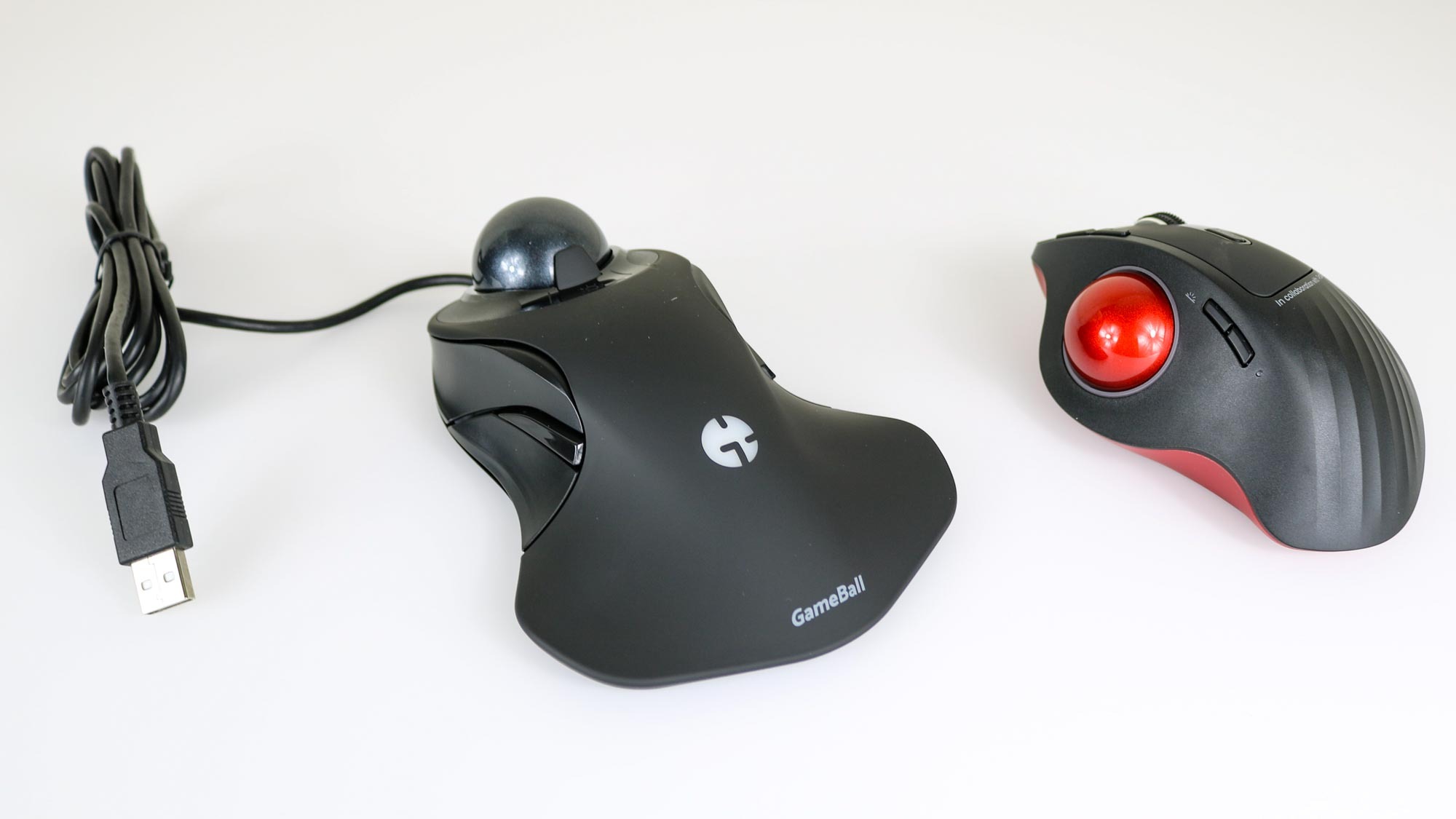
I also have the original GameBall mouse ($148, GameBall) on hand and I do plan on putting the device through its paces as well as trying it out with some other first-person shooters still lingering on my backlog. However, for most people, I think the GameBall Thumb is the better option, especially if you’re using a trackball mouse for the first time. The reason being is that most people are accustomed to using their index finger for left click and their middle finger for right click. Plus, the GameBall Thumb has a traditional scroll wheel and can connect to your PC and other devices wirelessly.
Don’t get me wrong though, the original GameBall is still a great device but it’s aimed more toward enthusiasts thanks to its extra buttons and the fact that you can use it with either your right or left hand. It’s also more than twice as expensive and there is a much steeper learning curve when using index-finger operated trackball mice. If you are set on switching to a trackball mouse and using it exclusively for gaming, I recommend trying another, cheaper one with the trackball mounted at the top before investing in the more premium GameBall mouse.
Gaming with a trackball mouse for the past two weeks has been a real eye opener. While I love my trackball mice for working and general computing, I hadn’t considered using one for gaming. Now that I’ve tried the GameBall Thumb though, I don’t think I could go back to using a traditional mouse when playing PC games with keyboard and mouse.
More from Tom's Guide
- I've got a big gripe with most tablets but the Pixel Tablet finally fixes it
- This portable monitor let me recreate my multi-monitor setup with my laptop
- I got tired of waiting for the PS5 Pro so I upgraded to the Xbox Series X instead
Sign up to get the BEST of Tom's Guide direct to your inbox.
Get instant access to breaking news, the hottest reviews, great deals and helpful tips.

Anthony Spadafora is the managing editor for security and home office furniture at Tom’s Guide where he covers everything from data breaches to password managers and the best way to cover your whole home or business with Wi-Fi. He also reviews standing desks, office chairs and other home office accessories with a penchant for building desk setups. Before joining the team, Anthony wrote for ITProPortal while living in Korea and later for TechRadar Pro after moving back to the US. Based in Houston, Texas, when he’s not writing Anthony can be found tinkering with PCs and game consoles, managing cables and upgrading his smart home.

